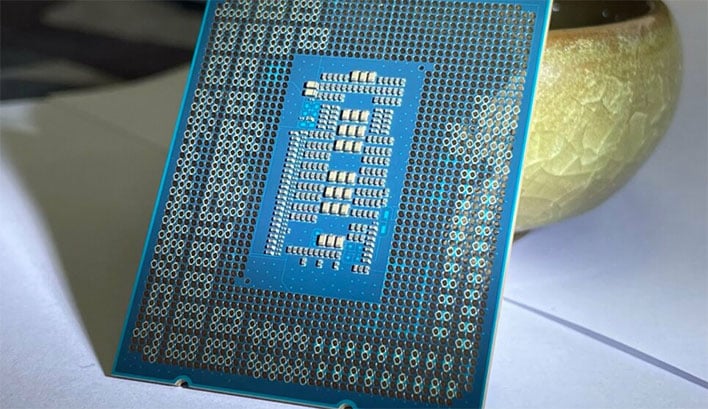Alder Lake May Break Some Games Due To DRM Tripwire But Intel Is Working With Devs

Oh no! Alder Lake is almost here, and when it arrives, it could break support for games, someone hit the panic button! Okay, don't actually hit the big red panic button that's overstating things by a bit (or a lot). But do brace yourself for the possibility of some gaming hiccups out of the gate, as developers figure out what does and does not work on Intel's hybrid architecture.
Hybrid computing is not a new concept by any stretch—Arm and its hardware partners have been highly successful with heterogeneous architectures—but in the x86 space, Intel has only dabbled (Lakefield, anyone?). Now it is getting ready to go all-in with Alder Lake, which will combine high performance Golden Cove cores (or P-cores) with power efficient Gracemont cores (or E-cores) in the same package.
To prep coders for the new era of computing on Intel hardware, the company published a guide primarily aimed at game developers, on how to optimize their stuff for Alder Lake. We covered many of the high-level details, except for one interesting tidbit—potential compatibility issues with Data Relationship Management (DRM), as Intel calls it (we call it Digital Rights Management around these parts).
"If your existing or upcoming game uses a DRM middleware, you might want to contact the middleware provider and confirm that it supports hybrid architectures in general, and the upcoming Intel ADL platform in particular," the guide states.
"Due to the nature of modern DRM algorithms, it might use CPU detection, and should be aware of the upcoming hybrid platforms. Intel is working with leading DRM providers such as Denuvo to make sure their solutions support new platforms," the guide continues.
In a perfect world, there would be nothing to see here—there's a potential tripwire for gaming on Alder Lake, Intel has given developers a heads up, and they'll ensure a smooth transition to the new platform. But we obviously don't live in a perfect world (if we did, the Patriots would have beat the Cowboys last night), and things we don't want to happen (like the Cowboys beating the Patriots last night) sometimes happen anyway.
We don't want to make a volcano out of a molehill, but this chunk of text is worth highlighting. It means some games might not work on Alder Lake on Day 1. It just depends on what developers can work out on the DRM side of the equation, and how it interacts with Alder Lake's hybrid makeup.
Realistically, publishers are not going to abandon DRM. They'll all get it sorted out. But where this could become an annoyance is with older (not necessarily 'old') games that are not longer being actively updated. If a game is based on a DRM scheme that doesn't play nice with Alder Lake and it is no longer receiving patches, it sounds like there is a possibility it may not run.
If so, this could push some people to seek out cracked copies (don't mistake that to mean we're encouraging anyone to do that—we're not). Hopefully it doesn't come to that. It's also worth noting that while Intel specifically points to Denuvo, that was just one example, suggesting there are other DRM schemes that are potentially affected. So, cross your fingers that Intel and game developers get this sorted out.
Thumbnail/Top Image Source: YuuKi-AnS (via Bilibili)

